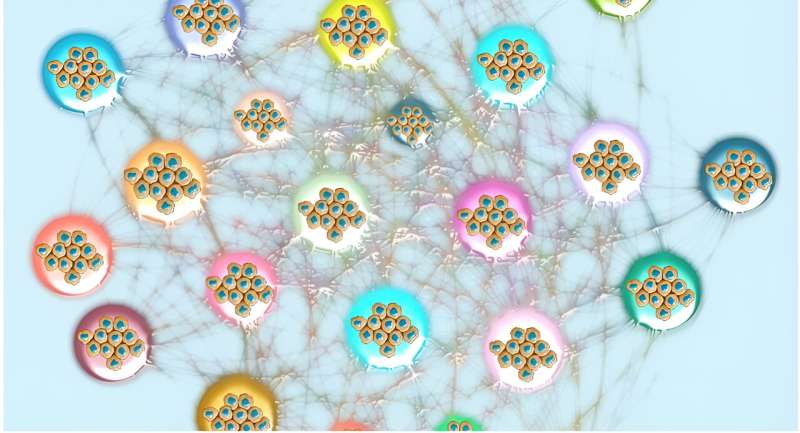This article has been reviewed according to Science X's editorial process and policies. Editors have highlighted the following attributes while ensuring the content's credibility:
fact-checked
peer-reviewed publication
trusted source
proofread
Researchers find more than 4,700 gene clusters crucial for prognosis in 32 cancer types

Researchers at the Mount Sinai Center for Transformative Disease Modeling have released a study identifying 4,749 key gene clusters, termed "prognostic modules," that significantly influence the progression of 32 different types of cancer.
The study, published in Genome Research, serves as a comprehensive resource and lays the foundation for the development of next-generation cancer treatments and diagnostic markers.
Despite significant progress in cancer research, understanding the disease's genetic intricacies remains challenging. Previous research has often focused on isolated gene functions in specific cancer types.
"We aimed to fill this knowledge gap by providing a comprehensive analysis of gene-gene interactions across various forms of cancer," said Bin Zhang, Ph.D., Willard T.C. Johnson Research Professor of Neurogenetics and Director of the Mount Sinai Center for Transformative Disease Modeling.
The team used a multi-omics approach, incorporating genomic, transcriptomic, and epigenomic data in their analysis. They employed advanced systems biology approaches to analyze more than 10,000 patient samples from The Cancer Genome Atlas (TCGA), one of the most comprehensive public cancer databases, and used rigorous network methods to identify and validate the gene clusters that have a significant impact on cancer prognosis.
"The implications of our findings are profound. We have identified 4,749 distinct co-regulated gene modules that play a pivotal role in cancer progression," explained Dr. Zhang.
Peng Xu, Ph.D., Instructor of Genetics and Genomic Sciences and co-senior author, added, "Our study goes beyond merely identifying these modules. It also elucidates the multi-scale regulations that govern their functions."
In simpler terms, the study has identified critical genes and their complex relationships that either halt or promote cancer progression. This new understanding opens the door for targeted research and development of future treatments and diagnostic methods for cancers.
While this study represents a significant step forward, it is not an immediate cure for cancer. However, it serves as a crucial foundation for developing targeted therapies that could lead to improved patient outcomes. "Our findings offer fertile ground for the next wave of cancer research and treatment strategies," said Dr. Zhang.
The paper is titled "Multiscale network modeling reveals the gene regulatory landscape driving cancer prognosis in 32 cancer types."
More information: Peng Xu et al, Multiscale network modeling reveals the gene regulatory landscape driving cancer prognosis in 32 cancer types, Genome Research (2023). DOI: 10.1101/gr.278063.123



















